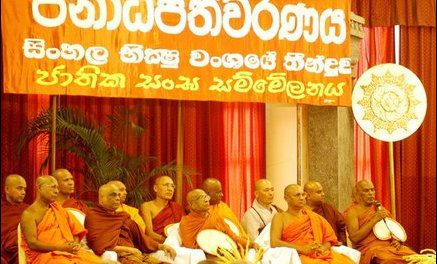![]() Many Christians and Hindus have assumed the Avatars in Hinduism and the incarnation of Christ to be similar. Moreover many Hindu friends even accept Christ as one of the gods, is such acceptance possible without accepting contradictions? To accept Christ as one of the Avatars and as one of the gods is impossible says George A Paul. Read to find out why?
Many Christians and Hindus have assumed the Avatars in Hinduism and the incarnation of Christ to be similar. Moreover many Hindu friends even accept Christ as one of the gods, is such acceptance possible without accepting contradictions? To accept Christ as one of the Avatars and as one of the gods is impossible says George A Paul. Read to find out why?
Mentioned below are just few differences. There are many more differences which are not mentioned here, hence I request the reader not to consider this as an exhaustive list.
| Hinduism | Christianity |
| The Puranas, state that the god Vishnu causes a cyclic manifestation and dissolution of the world. Each cosmic cycle (mahayuga) has four ages (Yuga). Krita Yuga – 1,728,000 years, Treta Yuga – 1,296,000 years, Dvapara Yuga – 864,000 years and Kali Yuga – 432,000 years | According to Christianity, the world was created by one act of God not as manifestation and dissolution and was created as ex nihilo (out of nothing), and it is not out of necessity that God created the world but He created because He wanted too by His sovereign and free will. Moreover, the world became corrupted by sin (free choice of humans) and not through pralaya. |
| This cycle is repeated 994 times, forming a period called kalpa, and then a dissolution (pralaya) | It will not follow a repeated cycle of manifestation and dissolution. |
| 36,000 kalpas and pralayas make the lifespan of Brahma, the creator god. | God is Eternal and Immutable and does not have any life span. |
| This is followed by a total dissolution (mahapralaya) when all worlds, time and space return into Brahman, and the whole cycle starts again in an endless process of manifestation (Kalpa) and dissolution (Pralaya) | The "new heaven and new earth" in Revelation (21:1) is not a new creation similar to the one presented in Genesis. Rather, The "new heaven and new earth" is an everlasting world where sin is eradicated and there will be "no more death or mourning or crying or pain" (Revelation 21,4). It will belong to those who accepted the saving work of Christ and will never have a pralaya to end it. |
| The Hindu god is said to descend ten times into our world during each cosmic cycle (mahayuga) in order to restore the balance between good and evil. | Jesus Christ came only once as incarnation and will not and never come again as incarnation. However, He will come as Judge to reward the righteous and punish the wicked. |
| The number of his avatars varies from one Hindu writing to another. The Markandeya Purana 4, 44-58 lists 12 avatars of Vishnu The Garuda Purana lists 19, The Matsya Purana 47, 32-52 lists 22. |
The number of incarnation of Christ is one and does not does not change. |
| Avatar is a periodical incarnation and in the case of the avatar of Vishnu the forms He takes is externally imposed on him because of the promises and gifts of Brahma or other gods to the demons. | The Christian account of the divine incarnation presents God the Son willingly leaving his divine glory, taking a human body and descending into our world through the virgin birth. This was his free initiative and not a necessity imposed on his nature by external forces. |
| The Hindu avatar though has unique missions the missions is repeatable. | Jesus Christ is the only incarnation of God, descended into our world with a unique and non-repeatable mission in history. |
| In Hinduism none of the avatars has a perfect union of the two natures. Rather they have divine nature combined with the physical one (animal or human). | The unique incarnation of God the Son, become 100% God and 100% Man, perfect in both his divine and human nature. |
| In avatar the physical body is a mere garment that is put on and off (according to Bhagavad Gita 2,22), there cannot be any real association of Vishnu with a physical body. | Christ association with his physical body was real and he came also to redeem our physical body by taking a real physical body, That is why there is so much stress on his physical resurrection, which for a Hindu avatar is absurd. |
| Avatar do not and need not have any historical basis. | Incarnation of Christ is Historical and is meaningless if it's not historical. |
| The crux of avatar is: To destroy the evil and to bless the righteous or the baktha, who may or may not righteous. (Skt. Dusta sikshna and sishta rekshna) | Christ's death is the striking difference and the crux of his incarnation: He had to die on the cross for our redemption from sin and reconciliation with God. The Apostle Peter states in his epistle: He himself bore our sins in his body on the tree, so that we might die to sins and live for righteousness; by his wounds you have been healed (1 Peter 2,24; see also 1,18-21; 3,18). |
| In the avatar there is no aspect of taking away of sin rather only destroying the evil person. | Jesus Christ as "the Lamb of God, who takes away the sin of the world" (John 1:29) has no parallel element. Jesus Christ prayed for his killers saying, “Father, forgive them, for they do not know what they are doing.” Luke 23:34; |
|
The avatar is an illusion and the Brahman is actual, hence even if there's any suffering of the avatar it is illusion. |
The suffering of Christ on the cross was not a mere illusion. His physical suffering was real and not illusion. |
| Various forms of avatar are taken and after the mission the form of the avatar is shed and removed like changing clothes. | Christ retains the Incarnate physical state even after resurrection. |
{moscomment}



